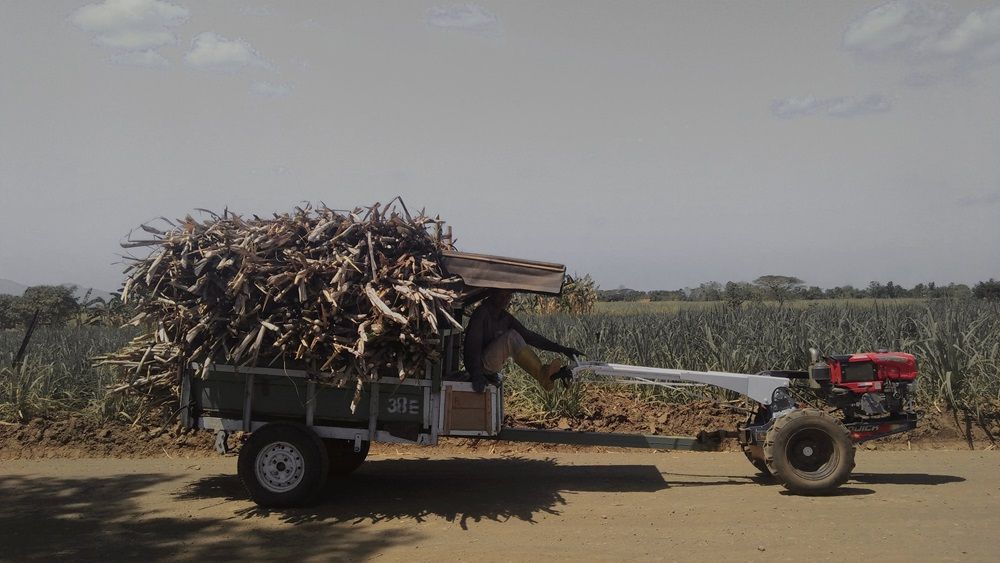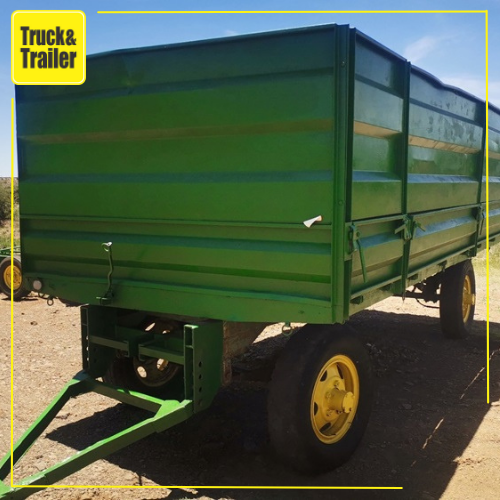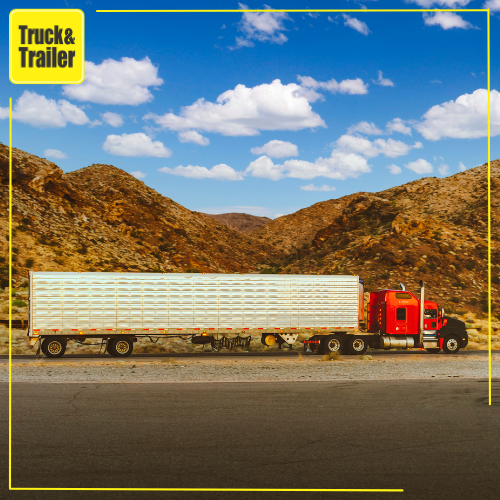The environmental impact of agricultural trailer usage primarily stems from fuel consumption, emissions, soil compaction, and habitat disruption. Agricultural trailers are often towed by heavy machinery, which consumes fossil fuels and emits greenhouse gases, contributing to air pollution and climate change. Additionally, the weight of trailers and machinery can compact soil, reducing its fertility and affecting plant growth. Furthermore, frequent movement of trailers across fields can disrupt natural habitats and ecosystems, leading to biodiversity loss. Proper maintenance and utilisation practices, along with technological advancements in eco-friendly farming equipment, can help mitigate these environmental impacts. Are you struggling to find specific commercial equipment on Truck & Trailer? We have well trained staff ready to assist you. Get in touch with us here.
Today, we delve into the various ways in which agricultural trailer usage affects the environment, ranging from soil degradation to carbon emissions. Understanding these impacts is crucial for implementing sustainable farming practices and mitigating environmental damage.
 Photo by Aku Angela on Pexels
Photo by Aku Angela on Pexels
Environmental Impact of Agricultural Trailer Usage:
1. Soil Degradation: The use of heavy agricultural trailers can contribute to soil compaction, particularly in fields with high clay content or during wet conditions. Compacted soil restricts root growth, reduces water infiltration, and diminishes soil fertility, ultimately impairing crop productivity and increasing the risk of erosion.
2. Erosion and Sedimentation: These types of trailers, especially when operated on sloping terrain, can exacerbate soil erosion. Soil erosion not only leads to the loss of valuable topsoil but also results in sedimentation in water bodies, degrading water quality and aquatic habitats. Sediment-laden runoff can also clog waterways and infrastructure, leading to flooding and other environmental hazards.
3. Fuel Consumption and Carbon Emissions: The operation of tractors hauling these trailers relies heavily on fossil fuels, contributing to greenhouse gas emissions. From tilling fields to transporting harvested crops, each stage of agricultural production involving trailer usage requires significant fuel consumption. These emissions contribute to climate change and air pollution, posing risks to human health and exacerbating environmental degradation.
4. Habitat Fragmentation: The expansion of agricultural activities often involves the conversion of natural habitats into farmland, leading to habitat fragmentation. These types of trailers play a role in this process by facilitating the transportation of machinery and resources to remote areas. Fragmentation disrupts ecosystems, reduces biodiversity, and can isolate wildlife populations, making them more vulnerable to extinction.
5. Noise and Visual Pollution: The operation of agricultural trailers, particularly in densely populated areas, can generate noise pollution, affecting both humans and wildlife. Additionally, the presence of large trailers and machinery in agricultural landscapes can contribute to visual pollution, altering the aesthetic appeal of rural environments and diminishing recreational values.

Interesting Facts about These Trailers
Diverse Agricultural Landscape: South Africa boasts a diverse agricultural landscape, ranging from fertile farmlands to arid regions. These types of trailers play a crucial role in transporting a wide variety of crops, including maize, wheat, citrus fruits, and wine grapes, across these diverse terrains.
Innovative Trailer Designs: In response to the unique challenges posed by South Africa's agricultural landscape, manufacturers have developed innovative trailer designs suited to local conditions. These trailers may feature reinforced chassis for off-road use, high ground clearance to navigate uneven terrain, and specialised attachments for hauling produce over long distances.
Contribution to Food Security: Agriculture is a vital component of South Africa's economy, providing employment for millions of people and contributing to food security both domestically and internationally. The trailers facilitate the efficient transportation of produce from farms to markets, ensuring a steady supply of food for local communities and export markets.
Role in Livestock Farming: In addition to transporting crops, agricultural trailers are essential for the livestock industry in South Africa. Livestock trailers are used to transport cattle, sheep, and other animals between farms, auction markets, and processing facilities, contributing to the country's vibrant livestock sector.
Challenges of Rural Infrastructure: The country's rural areas often face challenges related to inadequate infrastructure, including poorly maintained roads and limited access to transportation networks. These trailers must navigate these obstacles, highlighting the importance of robust and durable designs capable of withstanding rough terrain and adverse weather conditions.
Adoption of Technology: Despite challenges, farmers are increasingly embracing technological advancements to enhance the efficiency and sustainability of their operations. This includes the integration of GPS technology for precision farming, remote monitoring systems for trailer maintenance, and the use of renewable energy sources to power agricultural machinery.
Contributing to Economic Growth: The agricultural sector is a significant contributor to our country's economy, generating revenue through exports and supporting rural livelihoods. Agriculture trailers play a vital role in facilitating the movement of agricultural products, thereby contributing to the sector's continued growth and development.
Cultural Significance: In addition to their economic importance, agricultural trailers hold cultural significance in South Africa, symbolising the resilience and ingenuity of the farming community. These trailers are often featured in agricultural festivals, parades, and cultural events, celebrating the rich heritage of farming traditions in the country.
Overall, the environmental impact of agricultural trailer usage is multifaceted, encompassing soil degradation, erosion, carbon emissions, habitat fragmentation, and pollution. Addressing these impacts requires a holistic approach that integrates sustainable farming practices, technological innovations, and policy interventions. By promoting practices such as precision agriculture, conservation tillage, and alternative energy sources, farmers can minimise their ecological footprint while ensuring the long-term viability of agricultural systems. Furthermore, policymakers must enact regulations and incentives to encourage the adoption of environmentally friendly practices and promote conservation efforts. Ultimately, by mitigating the environmental impact of agricultural trailer usage, we can safeguard ecosystems, protect natural resources, and build a more sustainable future for generations to come. If you're having trouble locating particular commercial equipment on Truck & Trailer, don't hesitate to reach out to us. Our knowledgeable staff is readily available to assist you. Contact us here for assistance.
Read Related Articles
- How to Get the Most Out of Your Agricultural Trailer in South Africa
- Types of Agricultural Trailers you find on Truck & Trailer
- Essential Maintenance Tips for Agricultural Trailers in South Africa
- Essential Factors When Selecting an Agricultural Trailers for Sale
- Maximising Efficiency: The Numerous Benefits of Agricultural Trailers






